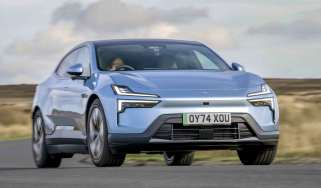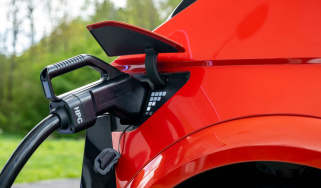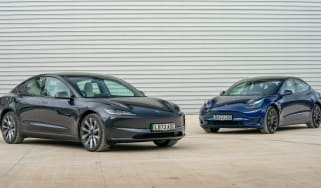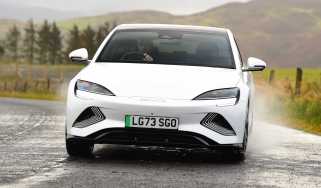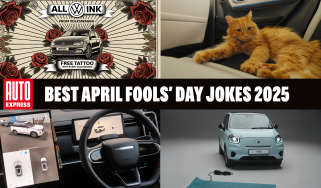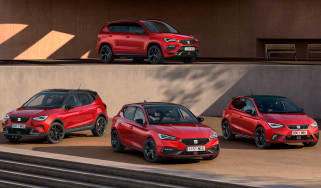UK 2030 petrol and diesel sales ban: what is it and what cars are affected?
Labour intends to pull forward the ban on sales of pure-ICE cars from 2035 to 2030 - here’s everything you need to know
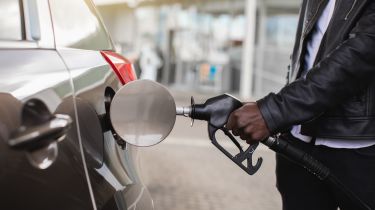
Government ministers say they are sticking to a pre-election manifesto commitment to end the sale of new petrol and diesel internal combustion-engined (ICE) cars in the UK from 2030, but what does that actually mean? Until the government responds to its recent consultation on changes to the Zero Emissions Vehicle Mandate (ZEV) put in place by the previous Conservative administration, we won’t have a definitive answer.
It’s possible that not much meaningful will change at all with regards to the ban. That’s because the previous Conservative government led by Prime Minister Rishi Sunak had already set the UK on a path towards ending the sale of all petrol and diesel powered cars by 2035, which is still the current date for the so-called ICE ban here in the UK.
Labour’s pledge to pull forward the ban to 2030 refers to ‘pure-ICE’ cars only, leaving the door wide open for continued sales of currently popular hybrid ICE models - those using a mixture of petrol/diesel and electricity - into the next decade. Which, if any, hybrid models will be allowed from 2030 under Labour’s new regime is one of the questions its consultation into the ZEV Mandate sought to address. The government’s response is expected soon, after which MPs in parliament will be asked to vote on changing the current ZEV Mandate rules.
2030 or 2035, how will the ban work?
The current law states that new petrol and diesel-powered cars and vans will be banned from sale in the UK in 2035, following the previous government’s move to postpone the measure that was originally scheduled to come into effect in 2030. This is why Labour talks about ‘returning to the 2030 ICE ban’, while leaving the door open for continued sales of hybrid models fuelled by petrol or diesel until 2035.
The change of policy announced by Rishi Sunak brought the UK into line with the EU and many other global markets, and currently means that from 2035 the only new cars and vans that can be sold will be pure electric ones, plus any hydrogen-powered cars, that may exist at that point.
Second-hand cars will be unaffected by the ICE (internal combustion engine) ban, and may be bought and sold freely just as now. That means that very many older petrol and diesel cars, plus conventional hybrids and plug-in hybrid models, are likely to be in use long after the 2035 deadline for selling new ones.
While we wait for details of how Labour’s 2030 ban will work, it’s unlikely to differ much in principle from the EU’s plan to ban the sale of petrol and diesel cars from 2035. That means we’re likely to see exemptions in place for low-volume or specialist manufacturers. However, while the EU intends to provide further exemptions for internal combustion engined cars powered exclusively by efuels, the UK government has so far made no plans to offer efuel exemptions here.
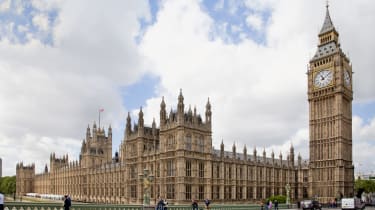
Limited Government help for the electric car transition
To help facilitate the transition away from fossil-fuel cars in the UK, £1.3 billion of investment was announced in 2020 to fund EV chargepoints for homes, streets and motorways across England. A further £582 million was set aside for grants to help people and businesses into EVs and PHEVs. The Government is also investing in battery development and mass production, while more money was earmarked for nuclear power plants, partly to help meet the demand for electricity the growing number of EVs will bring.
However, even though car makers will be mandated by law to sell increasing numbers of EVs - under the terms of the current ZEV Mandate starting at 22 per cent of their total sales in 2024 and rising to 80 per cent by 2030 - or face financial penalties, the government has so far resisted industry calls to incentivise EV buyers with taxpayers’ cash.
Since the government withdrew the UK plug-in car grant in 2022, there have been no financial incentives offered to private buyers of EVs. Meanwhile, company car buyers are offered major benefit-in-kind benefits if they choose an EV over a petrol or diesel alternative, a state of affairs which has led to booming EV registrations by fleet users, while demand for EVs among private buyers has fallen back.
Car manufacturers have lobbied hard in the ZEV Mandate consultation for a swathe of new incentives to encourage private buyers to transition to EVs. These include a cut in VAT on new EV purchases, as well as reducing the VAT payable on electricity used for public charging.
Background to the petrol and diesel ban: how we arrived at 2030
The shifting sands of future policy saw a consultation launched in 2020 to investigate if a ban in 2035, "or earlier if a faster transition appears feasible” should be introduced, with hybrids included in the proposals. Both 2035 and an earlier date were clearly deemed 'feasible' by the Government following that review and the 2030 date was announced in 2020, with some wiggle room for plug-in hybrids with 'significant' electric range. Rishi Sunak’s government, faced by the cost of living crisis and the prospect of a voter backlash, chose to reset the government’s net zero strategy to 2035. Labour made a manifesto pledge to overturn that decision to delay and return to a 2030 ban, albeit with the possible exemption for hybrids.
The ban on petrol and diesel cars is part of a wider £12 billion ‘Green Industrial Revolution’ that the Government hopes will create 250,000 jobs as the country invests more in battery technology, carbon capture, and green energy. The UK’s “industrial heartlands, including in the North East, Yorkshire and the Humber, West Midlands, Scotland and Wales”, will be key to the coming changes, with 50,000 jobs, and £1 billion of investment in “areas such as the Humber, Teesside, Merseyside, Grangemouth and Port Talbot” alone.
Your petrol and diesel ban questions answered:
We answer the your key questions regarding the ban on petrol and diesel cars...
What should I do about the ban?
It’s a tricky time for consumers to make decisions about their car ownership situation. Not only are there the aforementioned changes to what cars are going to be available to buy new in the coming years, but other factors – including the cost of living crisis, supply-chain issues and inflated prices – also come into play.
Making the leap to an electric car will certainly make sense for some drivers. If you can afford to pay the premium and don’t travel longer distances on a regular basis, then there is a great range of highly desirable options for you to choose from. While an exemption from road tax is scheduled to end in April 2025, company car tax rates remain highly favourable for EVs, which has so far been a large part of their appeal.
Buying a new petrol or diesel car while you still have the chance to do so will appeal to many. And if you fit into this category, a brand-new ICE car will cost less than its electric equivalent, plus you won’t have to worry about the charging infrastructure, as you would with an electric vehicle, or clean-air zones as you might with an older car. There is no prospect of any kind of ban on the use or sale of existing petrol and diesel cars. The ICE ban only applies to the sale of new models.
Of course, many of us don’t have the budget for a new car. It might be that you want to keep your old one going, but are worried about being affected by a clean-air zone. If so, the second-hand market is an option. Used electric cars are in more plentiful supply and modern petrol and diesel models will still avoid Ultra Low Emissions Zone charges.
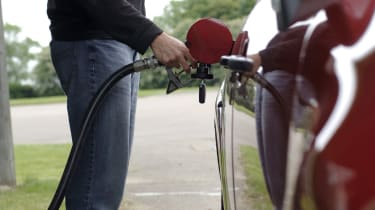
Can I still drive a petrol and diesel car after 2030?
Yes. The bans on these dates only apply to sales of new cars, and there are no current plans to outlaw the use or sale of second-hand cars based on these criteria.
Electric cars are still too expensive, though. Will anything be done to bring prices down?
Electric cars are significantly more expensive than conventional ones at present, a situation that wasn't helped by the end of the UK plug-in car grant, but the difference is narrowing. It can be difficult for manufacturers to turn a profit on some EVs but Looking forward to the next decade, it’s possible that increased manufacturing volumes and economies of scale will see this improve and prices come down. We’re already seeing increased competition in the market and new brands arriving from China pushing the prices of EVs lower.
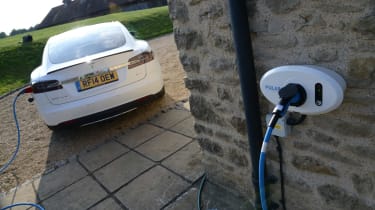
I don’t have off-street parking. How will I charge an electric car?
A number of solutions exist or are in development for this. Chargers that pop out from the kerb and lamp post chargers are two such options. Furthermore, as the number of electric vehicles in the country increases, so to will charging stations. Expect these to become more commonplace at supermarkets, pubs and restaurants, cinemas, leisure centres, and other locations over the next decade.
A change of mindset will also be required, with EV users highlighting the approach people take to charging their smartphones as being similar to topping up EVs: rather than always doing big overnight charges, for example, regular top-ups at ultra rapid hubs will keep people’s cars moving.
Click here to discover how you can charge an electric car at home without a driveway...
I cover above average mileages. Will my journeys take longer?
The average UK motorist drives around 21 miles a day, but many people do more. EV ranges are commonly increasing, however, with 200-300 miles from a single charge a realistic figure for many modern electric cars. Journeys of such length would typically bring with them pit-stops at motorway services, where ultra-rapid charging can add a useful amount of range in as little as 15 minutes.
I’m a van driver. How will the ban affect me?
Vans, also known as light commercial vehicles, are also affected by the existing 2035 ban, and it’s not yet clear how ZEV Mandate changes will pan out for commercial vehicles. But just as EV technology has developed rapidly for cars, so has it for vans. The new Ford E-Transit, for example, has a range of 217 miles, and the same cargo capacity as its diesel counterpart. Expect more such vehicles over the next decade and, while electric vans are likely to be more expensive to buy than diesel models, running costs can be lower thanks to the lack of engines to service, and diesel tanks to fill up.
Click here to discover the best electric vans on the market...
What about National Grid? Can the UK’s electricity supply cope with all these extra EVs?
Indications are that this will not be a problem. There are around 30 million petrol and diesel cars in the UK, but these will not be replaced overnight, and the phase-in of EVs will be gradual. Assuming new-car sales figures continue at their current pace of roughly two million a year, it’ll be 15 years before the UK’s petrol and diesel cars are replaced.
National Grid has previously stated that “enough capacity exists” for the transition to EVs, while its modelling predicts that even if all the UK’s cars became electric overnight, demand would only increase by 10 per cent.
Tell us which new car you’re interested in and get the very best offers from our network of over 5,500 UK dealers to compare. Let’s go…
Find a car with the experts



